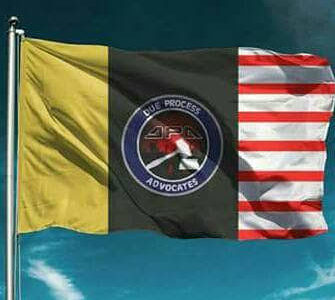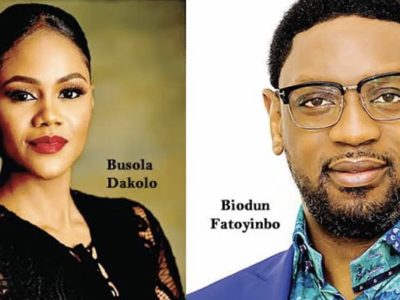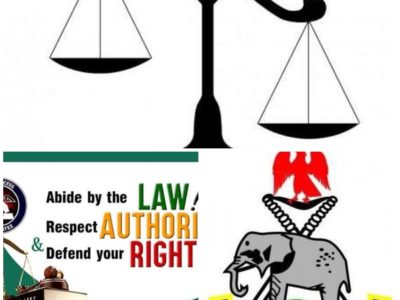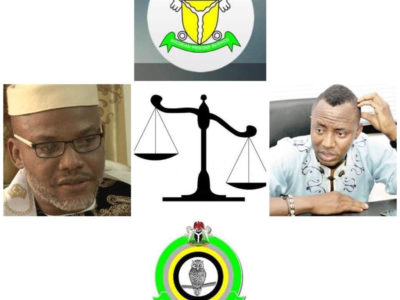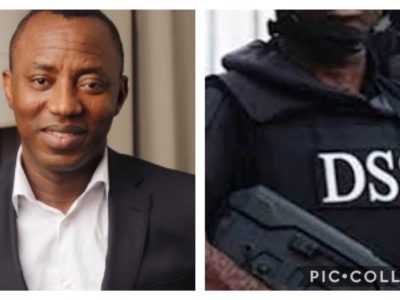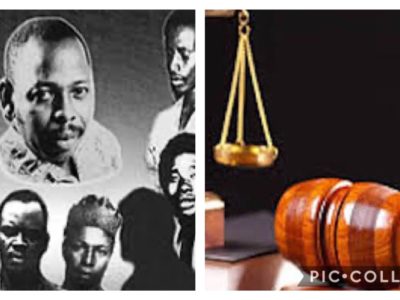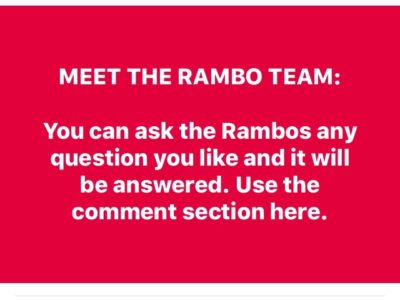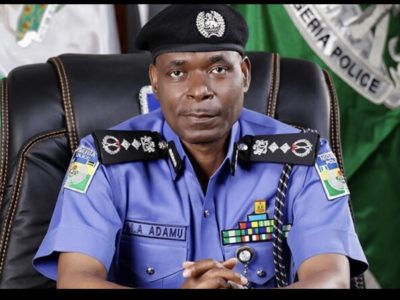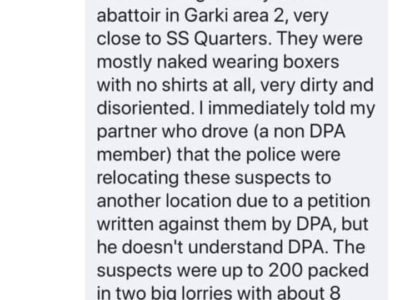Addendum toDPA recommendations to National Assembly on justice reform: The courts should bear the cost of transporting prison inmates from correctional facilities to the courts for trial
Currently, the cost of transporting prison inmates from various correctional facilities to the various courts for trials is borne by the Prison Service (Correctional Service).
Who are the inmates that have to be transported to courts for trial? These are people that the courts failed to admit to bail. They are called the untried inmates or awaiting trial inmates. In the earlier part of our report, we have shown that the courts have been largely reckless, irrational and inefficient in the manner they handle bail hearings, which led to the fact that 80% of prison inmates are awaiting trial cases. The reckless and dysfunctional manner in which judges deal with bail applications has profound cost implications. First, it means that 80% of prison inmates needs to be transported to court at somebody's expense. This requires each correction center to maintain a fleet of vehicles, personnel and security for the movement of inmates to and from courts each day. We do not have precise cost figures. But apart from feeding the inmates, the costs of taking them to court is probably the second highest expenditure category in the recurrent part of the prisons budget. Assuming that the cost per annum of transporting prisoners to court in the FCT Abuja area is 500 million naira, cutting in half the number of awaiting trial inmates will save 250 million naira in Abuja alone. That amount can go toward better and improved conditions of service for prison staff, and better facilities for reforming convicted inmates. Another manner in which the courts impose logistical costs on the prisons is by inordinate delays of trials. It compounds the problem of mishandling of bail applications. That is: the court has remanded a person in prison who ought to have been on bail. And then by failing to try the person in a timely manner, the court prolongs the period of time the person is incarcerated. This compounds the associated costs. We can extrapolate to the wider problems caused by the failings of the judiciary in this regard such as the general cost of keeping inmates in correctional facilities for a long time. However, we limit our analysis here to the cost of transporting inmates to courts for their trial. The question here is: Where do you place the cost of the inefficient behavior of the judiciary? At present, that cost is placed on the prisons. It is always inefficient when costs are not located in the same place as the source of the action or decision that gave rise to the costs. Unless the agency that makes the cost decisions is made to bear the cost, the decisions cannot be efficiently made. If the FCT judiciary is made to bear the 500 million estimated annual cost of transporting inmates from prison to courts, the attitude of the courts toward bail applications will change dramatically. If the cost of transporting inmates to courts were made to compete with the cost of welfare and vacation and medical allowances of judges, the judiciary will immediately reassess its attitude toward bail applications and the length of time it takes a court to conclude a standard case. Currently, some prisons don't have vehicles to take inmates to courts. Keffi prison, for instance, takes inmates to courts only twice a week. The courts are not aware of this. So, on a day the prison is not able to bring an inmate to court, the judge will just adjourn the case to next month. But the date of the next adjournment may be another day the prison will not have a vehicle. This could go on for six months without the prisoner ever being to court. But assuming it is the court that arranges the transportation of the inmate, this sort of waste will likely not occur. DPA therefore suggests changes that will be necessary to make the courts bear the cost of bringing to court the person they could not release on bail. When a person has not been convicted, he belongs to the courts and not to the prisons. It should be the responsibility of the courts to bring the person from prison to court and back until the end of his trial or until the court grants him bail. This is what obtains in some other countries including Britain. This recommendation calls for a redefinition of the relationship between the courts and the prisons. Currently, the prisons are blaming the courts for congestion and costs of transporting inmates to courts, and the courts are blaming the prisons for either not bringing the inmates to courts for trials or for not bringing them on time. This situation will change if the courts bear the cost of its actions and decisions in this regard. This will lead to greater efficiency and improved justice in Nigeria. By the Due Process Advocates Foundation (DPA).What did the court really say in the rape case against the COZA pastor?
The benefit of being a member of this forum is that it gives you the opportunity to operate above the average person. As an Advocate, you should not think or react like an average person in the society. You may not have trained in Harvard or Oxford, but your exposure to DPA debates and reasoning keeps you very close.
Looking at the judgment of the court in the case which Busola Dakolo filed against Pastor Fatoyinbo, you see reactions that show you how deeply ignorant many educated people are. You need to understand that case in a way an informed observer should see it.
The court DID NOT decide that the Pastor was not guilty. The guilt or innocence of the Pastor was never before the court. Why? Because it was a civil case. Neither the police nor the Ministry of Justice (MOJ) filed a rape case against the pastor. What happened was that the lady filed a civil action for sexual assault against the pastor.
Rape is a criminal offense. Only the police or the MOJ can charge a person to Court for rape. When the MOJ or the police sue you, it is the country that is suing you. They use the awesome resources of the country to pursue you - investigate the case, bring together witnesses and prosecute you.
This case was brought by the lady herself, as a civil action. In civil suits, you must file your case within 6 years after the incident occurred, except under special circumstances when you may be allowed to bring an action after 6 years had elapsed.
Busola's case was actually in two stages. The first stage was to see if she could be allowed to bring her action after 6 years under one of the exceptions to the rule. The second stage would be whether the man did what he was accused of doing. The case did not get to that second stage. The judge held that the suit was statute barred (That is, she did not come to court early enough. So her case cannot be heard). That was what the court decided. It is wrong to assume that the court decided the second stage of the case - whether he did it or not.
Criminal cases generally do not have statutes of limitation. If the MOJ had decided to prosecute the pastor, the case would have gone straight to the second stage (evaluation on the merit) and the court would address the issue of guilt or innocence.
Let me illustrate how the statute of limitation works. Let us say that I am a man and you are a lady. Let us say that I come to your house now and find you alone at home. Let us say I pull a knife on you and rape you violently and I threaten to kill you if you tell anyone what happened. Let us say that you did not sue me until 2025 (The incident occurred on November 14, 2019 and you decide to sue me on November 15, 2025). I can actually come to court and say: "My Lord, everything she said is true. But that was more than 6 years ago and your court has no jurisdiction to hear a case that is statute barred". The judge will look at me and hate me. But he will still dismiss your case, not because I did not do it, but you waited too long to go to court. You should have sued me two days ago instead of today.
So, even if the COZA Pastor had confessed that he did it, the judgment will still be the same.
So it is not correct to read what happened in court to mean that the court found that he didn't do it.
DPA can expose the police: look at this
Emeka Ugwuonye has been on a mission, forced upon him by circumstance. When they took him to Abattoir, he saw unimaginable impunity. When they took him Garki police station, saw more. DPA has kept a good record of how the police can abuse their prosecutorial authority.
A SUMMARY OF ABUSE OF PROSECUTORIAL POWERS THROUGH THE CASES
The Nigerian Police, FCT Command, headed by Mr. Bala Ciroma, filed the following charges against Emeka Ugwuonye and grossly abused their powers.
(1) In April 2018, the police filed a criminal defamation charge against Emeka at the Magistrate Court, Wuse Zone 2. Court No. 2. Complainant is David Aiyedegbon. The theory of the offense was that Emeka made a post on Facebook accusing David of involvement in the disappearance of Chacha. Note that David already sued Emeka civilly since 2016, but was doing badly in the civil case. Also, note that in April 2018, the police had not arrested anyone in connection with the disappearance of Chacha. So, they really could not have ruled out anybody.
On the day of arraignment, the police prosecutor, one Mr. Adama vigorously opposed bail. But the court granted Emeka bail over the opposition of the police. Outside the courtroom, Mr. Adama warned Emeka's counsel, Mr. Tosin Ajaomo, that if Emeka continued criticizing the police over Chacha's case the police would charge him with the murder of Chacha. Note that in April of 2018, the police officially continued to deny DPA's claim that Chacha was killed in 2016.
The police were disappointed that Emeka was granted bail in Court No. 2.
(2) On July 6, 2018, while Emeka attended hearing at Court No. 2, the police arrested him at the court house. They detained him in Abattoir detention center till July 9, 2018 when he was charged to Court at Magistrate Court, Wuse Zone 2, Court No. 9. Again David was the Complainant. The theory of the offense was that he, Emeka, misled the police when he posted on Facebook that the confessions of the two men arrested and paraded by the police as killers of Chacha were probably not voluntary.
The police vehemently opposed bail. But the Magistrate granted Emeka bail over the opposition of the police. Emeka met the terms of bail the same day. But the police prosecutor refused to verify the surety as directed by court. It took 7 days detention of Emeka in Keffi Prison before the Magistrate varied the bail order for the purpose of removing the requirement of verification by the police prosecutor.
(3) On October 16, 2018, while Emeka was attending the trial in Court 2, the police arrested him again and detained him. On October 18, 2018, while in the custody of the police, Mr. James Idachaba, a senior police officer, was heard discussing with other police officers concerning how to ensure that Emeka would be remanded by any court. The discussion was which of the Magistrates would agree to deny Emeka bail in the next charge. The officers mentioned names of various Magistrates. They settled on one Magistrate at Court 3, Wuse Zone 6. Mr. Idachaba made a phone call, presumably to the Magistrate. They discussed Emeka Ugwuonye and the need to remand him. After the call, Mr. Idachaba ordered Emeka into a police van and they took him to Magistrate Court, Wuse Zone 6, Court 3. Mr. Idachaba went into the office of the Magistrate and came out after about 30 minutes.
When the case was called and after arraignment, the police opposed bail. The Magistrate played to an agreed script by calling for a written bail application. He adjourned for a week to hear the bail. On October 25, 2018, he adjourned again to October 26, 2018 to rule on the bail application. The Magistrate granted bail.
(4) On November 14, 2018, while he was attending the hearing at Magistrate Court 9, at Wuse Zone 2, the police withdrew the case in that Court. The Magistrate made a profound remark while striking out the case. The Magistrate stated on record that the police were desperate and that their action amounted to persecution of Emeka.
(5) As Emeka was stepping out of Magistrate Court 9, on November 14, 2018, the police served two criminal summonses on him. One contained 10 count charges, which was a duplication of the charges filed in the three Magistrate Courts (Court 2 and 9, Wuse Zone 2 and Court 3, Wuse Zone 6). The second summons was for a murder and armed robbery charge. The theory of the offense was that Emeka conspired with Jekwu and Emmanuel Adogah and robbed and killed Chacha with a machete. Emeka was not arrested this time.
(6) On November 26, 2018 while Emeka was attending trial at Magistrate Court 2, the police arrested him again and took him to Abattoir Detention center where he was held until December 14, 2018 when he was arraigned before Justice Modupe Osho-Adeyemi of the FCT High Court, Gudu. The judge remanded Emeka in Kuje Prison.
(7) In February 2019, Justice Modupe Osho-Adebiyi denied Emeka bail to the delight of Mr. Idachaba who led the prosecution team. Justice Modupe Osho-Adebiyi admitted later that she decided the bail application without reading the proof of evidence. This is instructive because one of the grounds for the bail application was that there was no connection between the charges and the proof of evidence.
(8) The police prosecution and the complainant sponsored people to come to Court to photograph Emeka in the dock and use his pictures for smear campaign against him in the social media.
(9) After Emeka was denied bail and remanded, the prosecution still went to Magistrate Courts 2 and 6 to ask for bench warrant because Emeka was not in Court.
(10) When the Magistrates refused to issue bench warrant, given that Emeka was in the prison custody, the prosecution applied to withdraw the charges in Courts 2 and 6. Their aim then was to obtain a bench warrant which could be used to justify further arrests if Emeka was to get bail at the High Court.
The records of these proceedings are available. There is no doubt that the Commissioner of Police and Mr. James Idachaba have thoroughly abused the prosecutorial powers of the police, with the indulgence and probable collusion of some of the judicial officers.
Prepared by DPA
Comparison between Dss cells and Kuje prison
(1) Feeding
(a) Prison food is rated 3 on a scale of 10 for standard meal. But prison allows for self-feeding for inmates that want to buy and cook their own meal or have someone prepare their meal and deliver it. So, an inmate that can afford it can eat whatever he wants, as often as he wants and as much as he wants. It will be prepared to his taste.
(b) DSS food is rated 7 on a scale of 10 for standard meal. However, DSS does not allow its inmates to be on self feeding or to buy food or to have someone deliver food to them, except on very rare occasions. You are restricted to their ration and their feeding schedule.
(2) Water
(a) Prison inmates drink from the boreholes within the prison which supply water to the prison. But sachet water, bottled water, all manner of nonalcoholic beverages are available for inmates who can afford them.
(b) DSS detainees have only the water supplied by their borehole. They do not allow any other sources of water or beverages to get to inmates.
(3) Regulation visit
(a) Prison inmates are entitled to visits under various laws (local and international laws). Except in well-established situations, the prison officials are forbidden from monitoring conversations between an inmate and his visitors. If the visitor is his lawyer, prison authorities are strictly forbidden from listening into their conversation. It is up to the prisoner to determine who can visit him or not within the visiting period.
(b) There is really nothing like regulation visit for DSS detainees. It is up to DSS officers what they can allow and what they cannot allow. Usually they allow one of your lawyers and one of your relatives (your wife) to be those that can visit you. You're generally not entitled to visits. They listen into every discussion between you and your allowed visitor. They insist that discussion between you and even your wife should be in English.
(4) Access to newspapers, books, television:
(a) Kuje prison, like most prisons in Nigeria, has a library. Every cell has TV with DSTV or Go-TV (inmates contribute money for subscription). Apart from library books, prison inmates can read books and can bring in their own books, provided each such book is cleared through the welfare department. Inmates can watch video games and have their mp3, and other music players.
(b) In DSS cell, there is no tv, no newspaper, no book except religious books (Bible and Quran) and no library.
(5) Community life
(a) Prison inmates are opened out up to 9 hours each day. Once out of their cells, they are free to mingle with other inmates, play games and sports with them, worship or fellowship with them.
(b) DSS inmates are restricted to their cells 24/7 unless there is a reason to bring you out briefly when they want to interrogate you. Once that is done, you are back to your cell. Your only community is your cell mates (about 35 in a cell). There is absolutely no sporting facilities.
(6) Conditions of incarceration:
(a) International law does not allow prisoners to be detained in underground cells. They must have ventilation. (Nigeria is far below the international standards, but there are no underground cells in Nigerian prisons)
(b) DSS has underground cells known as Alpha Cells. Sowore and his codefendant are in one of such cells. In those cells inmates cannot see the natural light from their cells. DSS cells are designed to inflict psychological torture on the detainee.
(7) Purpose of detention
(a) Prison authorities detain you for correctional purposes or to make you available for your trial. So, many things in the prison are designed to reform the inmate. For this reason, you have educational institutions such as the Open University and others within the prison, various religious groups minister with the inmates. You have sports, parties, etc.
(b) DSS detain you in order to investigate you and to pressure you to cooperate. It is thus a hostile place for torture and pressure and surveillance. There is CCTV camera in every cell, just like the Big Brother, without the fun side.
There are so many other areas of comparison to show that being remanded in prison is several times better than being remanded in DSS or any police cell.
It was unwise for Sowore to choose to be detained in DSS cell. He has been totally isolated from society. He has not read newspapers or seen a tv screen since his detention. His only source of access to the outside world was if he meets his lawyers in court or his relative (the relative that was allowed), and they tell him what is happening outside.
In rare occasions, a DSS detainee develops a rapport with DSS officers handling him. In such case, they use their discretion to allow such inmate to come out of his cell more often to sit and gist with them. An example was Nnamdi Kanu. After a while in their custody, many DSS officers liked to chat with Nnamdi. They liked to listen to Nnamdi’s ideas, etc. So, they allowed him time outside the cell. But Sowore has not developed such rapport with the officers. Besides, he lacks Nnamdi's charisma and intellect.
Also, the DSS officers were annoyed when Sowore started yelling "RevolutionNow" in court the first time he appeared in court. DSS read a different kind of meaning into it. Obviously Sowore wanted to imitate Nnamdi Kanu. But the outcome was totally different. First, whereas Nnamdi Kanu did his own right in the presence of the Judge like calling President Buhari a mad man right in the presence of the judge, Sowore always waited for the judge to leave the court before staging his own drama. So, everybody saw Nnamdi as genuinely fearless, while they saw that of Sowore as calculated opportunism to create impression of courage. Because Nnamdi exploded in the presence of the judge, DSS looked to the judge for how to respond to Nnamdi, and the judge only cautioned Nnamdi. However, because Sowore did his own after the judge left, it was up to DSS to control the situation and they swiftly subdued him physically there and then. Nnamdi was seen as daring the judge and the state, which was an act of courage, but Sowore was seen as insulting the DSS officers and they took it personal.
Also, it was unwise for Sowore to try to imitate Nnamdi Kanu. Each time Nnamdi was in court, there were at least 3,000 supporters in the court premises chanting in support of Biafra. That worried the authorities. So, Nnamdi's court appearance was a major security event. But despite the efforts of Sowore's friends, not up to 20 people come to court as his supporters. Nnamdi had the elements of a revolution, while Sowore lacked every bit of it.
Today, we shall know exactly what the DSS is up to on Sowore. If they release him today, then they only wanted to mess with him and his lawyer as a psychological message. If not, they will have to come up with a plan. As Rambo suggested earlier, it is possible that DSS is planning to keep Sowore in detention for as long as Buhari is in office. When Femi Falana begins to say there is a 3rd term, and he is representing a man that calls for "revolution now", these people read more meaning into the relationship between Falana and his client.
We shall know more by the end of today.
Dss failure to release Sowore, egregiously contempt
Contempt for the rights of a citizen! Contempt for Falana, a senior lawyer in Nigeria with very loud voice. And contempt for the court. That's exactly what it is. The DSS says to all: "There is nothing you can do. We are the law unto ourselves".
The consequences of the behavior of DSS are far reaching. It sends a message to all Nigerians, that we are not a country of law, that instead, we are a jungle state. It means there is no rule of law. It erodes confidence in the country, by confirming that the country is a zoo for sure. It undermines the independence of the judiciary.
It sends a message to the judges, that they are powerless, that the constitution is useless, that they do not control outcomes when it comes to justice.
Judges don't like to give orders that will not be obeyed. The effect of the behavior of DSS is that judges will stop granting bail because they feel it is safer not to make an order that will not be obeyed. Very sad indeed for the country. One wonders if the President understands how this sort of thing tarnishes his legacy as a leader
Nigeria, the bitter memories and continued use of politically motivated prosecutions
One dangerous and persistent aspect of Nigerian experience remains the abusive use of the prosecutorial powers of the state. By this, we refer to all instances where government officials fabricate a crime and put an opponent of government through a sham trial. Not only can such sham trial put the innocent man through a great deal of pain and suffering, it can lead to his death. That was the case of Ken Saro Wiwa and eight others.
Selective and politically motivated criminal investigations and prosecutions pose the worst threats to rule of law, political stability and development of a country.
Increasingly, Nigerian law enforcement agencies, particularly, the EFCC, the police and DSS, have used false, retaliatory, and persecutory prosecutions to go after critics of government or government policies or critics of corruption in law enforcement.
To understand how the world views politically motivated prosecutions, let's examine what is going in the United States over the impeachment inquiries against President Trump. In the impeachment testimony of Senior State Department Official, George Kent, Mr. Kent said:
“I do not believe the US should ask other countries to engage in politically associated investigations and prosecutions.… As a general principle, I don’t think that as a matter of policy the US should do that, period, because I have spent much of my career trying to improve the rule of law. And in countries like Ukraine and Georgia, both of which want to join NATO, both of which have enjoyed billions of dollars of assistance from Congress, there is an outstanding issue about people in office in those countries using selectively politically motivated prosecutions to go after their opponents. And that’s wrong for the rule of law regardless of what country that happens,"
Politically motivated prosecutions are a big threat to rule of law. Civilized nations oppose it so much that they are willing to remove a president who tries it. Why can't Nigeria learn? Why can't we learn from Ken Saro Wiwa? Why try the same wicked and discredited practice against Emeka Ugwuonye and many more?
We must find ways to hold responsible those who do this. No matter how long it takes, we need to go after them and hold them accountable. Thank God, an arrest warrant just got issued against Campore for the killing of Sankara. It means we can still go after people for crimes committed 40 years ago.
DPA RAMBO ON HOT SEAT: Ask your question now .
DPA usually gives opportunity for people to ask questions or report issues that concern them to a special team of experts called DPA RAMBO that volunteered to help.
As an advice, search on the DPA Facebook wall for any question and you might be lucky that an answer has already been provided for you.
Note: You can reach Rambo team via Rambo Facebook inbox and Rambo twitter handle too.
Why Justice Abang: is he being blackmailed ?
Why is Justice Abang the preferred judge for the Federal Government? Is it by coincidence that where there is a critical government interest in a case, Justice Abang will be the man to deliver for the government?
In Olisa Metuh's case, it is Justice Abang. In Maina's case, it is Justice Abang. And now, the embattled Inspector General of Police, Mr. Adamu, is openly calling for Justice Abang to be the one to handle a case involving his office.
The most striking anomaly is not the fact that Abang is the government sought-after judge, but it is remarkable the uncharacteristic personal interest, passion and emotions with which Justice Abang goes after these cases. On October 30, 2019, Justice Abang shocked everybody in his court when he told Maina, who was in the witness box in his court, to stop looking at him.
When he was in the Lagos division, Abang was known as a fair and hardworking judge. But in Abuja, he seems to have become a different kind of judge. It is right to wonder what happened to him. Is he being blackmailed by the government?
LEVERAGING ON FINANCIAL INTELLIGENCE TO ESCAPE THE RAT RACE OF LIFE
Rat Race is a frustrating, hard-to-break circumstances of life that usually forces us to stay in jobs we don’t always enjoy due... Read More
Eye witness account of the movement of abattoir detainees to prison in Abuja
More detailed information has reached DPA News on the dramatic details of how Abattoir inmates were moved on Monday and Tuesday from Abattoir police detention to Kuje and other prisons.
Since 10th October 2019, DPA has sent two petitions to the National Assembly, the Presidency, the Chief Justice of Nigeria, the United States and British Governments, the Inspector General of Police, etc, alerting them of gross human rights abuses perpetrated by the Nigerian police at Abattoir detention center. DPA petition demanded for hearings and investigations into these atrocities and closure of Abattoir.
The existence of Abattoir and the atrocities committed there came to light after a police officer, James Idachaba, unlawfully detained Emeka Ugwuonye on July 6, 2018 at Abattoir. That decision to detain Emeka Ugwuonye, Founder of DPA, turned out to be a fateful event.
Upon discovering the atrocities, Ugwuonye made it the mission of DPA to expose Abattoir to the world and to free thousands of Nigerian citizens detained there in slave-like conditions.
Abattoir, which turned out to be billions of naira racket from which police officers like Mr. Bala Ciroma, the current Police Commissioner for Abuja, and Mr. James Idachaba unlawfully enriched themselves. These two butchers of Abattoir conspired to silence Emeka Ugwuonye by fabricating false murder charges which led to unjust detention of Emeka Ugwuonye by Justice Modupe Osho-Adebiyi under questionable legal circumstances.
The detention of Emeka Ugwuonye did not deter DPA from pursuing the mission of closing down the Abattoir detention center. This effort began to bear fruits from multiple branches when last two weeks the Chief Judge of FCT Abuja and the Chief Magistrate of Abuja decided to pay a scheduled visit to Abattoir.
As usual, early in the morning of the scheduled visit, the policemen went to the Abattoir cells and moved hundreds of inmates and hid them. By the time the Chief Judge and Magistrate arrived, the detention cells looked empty. But one of the few inmates that were left behind had the courage to inform the Chief Judge and Chief Magistrate that the inmates were hidden from them. The Chief Judge and Chief Magistrate then decided to pay unscheduled visit to Abattoir.
On Monday, 4th October, 2019, the Chief magistrate arrived Abattoir early in the morning with his staff unannounced and the police were taken unawares. The Chief Magistrate could not believe what he saw. The Chief Magistrate issued hundreds of warrants for the inmates to be remanded in prison and to be charged to Court. That led to the moving of the inmates on Monday evening to Kuje and other prisons. This event was acknowledged by several eyewitnesses. (See the screenshot below).
The efforts of the Chief Magistrate coincided with the effort of the IGP office to decongest Abattoir in anticipation of the public attention which DPA has brought to bear on the scandalous activities going on at Abattoir.
This is an unfolding event and further updates shall be provided. Stay tuned to DPA News.

